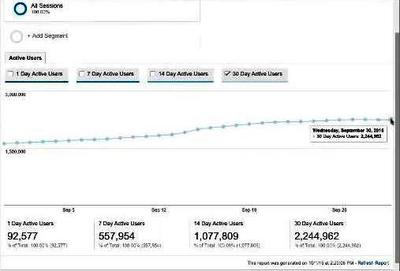One hundred years ago, Andrew Carnegie made the gift of literacy to more than 3,500 communities across the United States through his endowment of public libraries. In partnership with local communities, Carnegie grants enabled the construction of beautiful buildings designed to house books to be shared and built to last. The wealth of literature on the shelves of Carnegie libraries was free to the public. Wow! Big idea!
In many of the developing parts of the world, Africa, India and South America, billions of people are held back by illiteracy, low literacy and access to books. But first things first. It's very clear that people cannot and will not read unless they have access to reading material. How can billions of underserved potential readers get access to books in the twenty-first century? Enter David Risher, former Microsoft and Amazon top executive and life-long reader. A visit to a rural school in Ecuador in 2009, with a locked and unused library, became the inspiration for a world-wide transformational organization to promote literacy. David's epiphany?
There aren't enough trees in the world to chop down to make all the books you'd need to reach the billion or so people in the developing world so they could benefit. Since digital is increasingly ubiquitous and everyone is going to have a cell phone one day, or we could put a device in your hand like a Kindle and you put all this together and you can get a really large number of people reading. And we do that. We have hundreds of reading programs through sub-Saharan Africa, and we have people reading on cell phones.
Imagine that! The idea of reading books on cell phones! And so, a few months later David teamed up with Colin McElwee, an economist and professor of business education to found Worldreader.org. Since then, they have amassed a library of e-books, making sure that the titles are culturally relevant to the area they are serving and they have developed many programs for schools, collaborating with teachers, with reading instruction for children using tablets and Kindles. Currently they are reaching readers in 69 countries, providing them with 28,514 book titles in 43 languages.
And yes, people are reading and the numbers grow every day. Here are some data from this past month:
The data also break down who is reading what and how much time they spend reading. There are many reports on their website that provide an interesting picture of the current million + readers.
What interests me most, as a children's book author, is what's happening with the reading programs for kids. Worldreader partners with other organizations, like Pencils of Promise, to provide the reading material that is taught in their schools. David summed it up for me with a broad smile:
We worked with 4th graders with Pencil of Promise. At the beginning of the year only 59% of the kids could read above the threshold level of 45 words per minute. At the end of the school year, after using our books on e-readers, taking them home at night, 89% of the kids were reading above the threshold.
What can't be quantified is the motivation and enthusiasm of students in developing nations. I saw it myself when I visited schools in Kenya and Uganda twenty years ago. The children were thrilled to be in school. They came running up to me and my colleagues to announce their ambitions, "I'm going to be a doctor," said one girl. "I'm going to be an architect," said a boy. David told me that that has not changed.
Motivation is the key to learning. Books are the portal to knowledge. Use a cell phone as the nexus and watch what happens.

